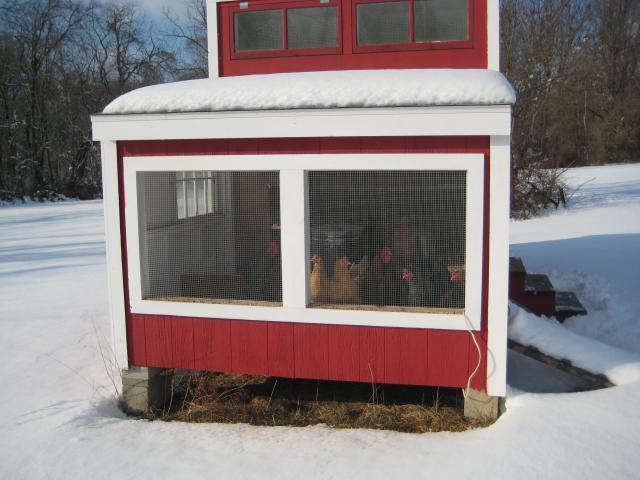Des R
Chirping
I'm getting such mixed answers on heat lamps, I figured I should ask the pros... so here I am! Right now they are only a week old and nice and toasty in their brooder... but I'm wondering what I'm supposed to do when they go into the coop...?
I live near the PA, MD, and DE line. We get snow in the winter and temps can get low... but we're pretty mid-Atlantic. We get a few nights that can get down to a few degrees, but that's not for a long spell. Some people tell me they must have heat lamps in the winter inside the coop (so I purchased several) and others tell me "no way!" you only want a bare bulb to take the chill off and it's bad for the birds to make it too much warmer then outside the coop. If breed matters, we have Barred Rocks, Buff Orpingtons, Easter Eggers, Silver Laced Wyndottes, and Black Sex-Links. I have no idea what to do...
Thank you for your input!
I live near the PA, MD, and DE line. We get snow in the winter and temps can get low... but we're pretty mid-Atlantic. We get a few nights that can get down to a few degrees, but that's not for a long spell. Some people tell me they must have heat lamps in the winter inside the coop (so I purchased several) and others tell me "no way!" you only want a bare bulb to take the chill off and it's bad for the birds to make it too much warmer then outside the coop. If breed matters, we have Barred Rocks, Buff Orpingtons, Easter Eggers, Silver Laced Wyndottes, and Black Sex-Links. I have no idea what to do...
Thank you for your input!



